Why I’m writing about single and childless women through history
Let me explain, through the words of well-spoken single women such as Tracee Ellis Ross, Bella DePaulo, Oprah Winfrey, Glynnis MacNicol, Shonda Rhimes, and Kate Bolick, as well as married/formerly married advocates such as Rebecca Traister, Chimamanda Ngozi Adichie, Gloria Steinem, and Jennifer Aniston, why I am so interested in telling the stories of women who were unmarried and without children.
#1 Single women are still stigmatized
Even today, there is still a stigma attached to unmarried and single women. The most visible example is found in the English language itself: a single man is a « bachelor » (a neutral term that is often perceived as positive) while a single woman is a « spinster », « old maid », or a « thornback » (all negative terms which have been around for centuries).
Society views single and unmarried women’s lives as incomplete. This is especially visible in popular fiction: they are either pitied, like Bridget Jones, or judged to be frivolous, like Carrie Bradshaw from Sex and the City. Whichever stereotype they are squeezed into, they aren’t viewed as full adults with responsibilities, goals, and struggles in the same way as couples are perceived. In fact, single and unmarried women often have to justify their lives. They need to be over-achievers in every other way including in their careers, studies, and hobbies.
Because women are expected to marry by a certain age, it can cause a lot of pressure and anxiety for women who feel like they’ve failed to accomplish that goal. Emma Watson discussed the anxiety she felt when she approached her 30th birthday without being married or having children and Glynnis MacNicol shared the same feelings when she reached 40.
It’s no wonder that Rebecca Traister’s pioneering book All the Single Ladies: Unmarried Women and the Rise of an Independent Nation (2016) became a best-seller or that Tracee Ellis Ross has become an icon for her unapologetic life as a single woman. Because that’s how much positive representation of singlehood is needed. Not just as a temporary state until a relationship or marriage, but as a valid way for women to live their lives.
#2 Marriage is presented as inevitable
Young girls are taught to dream about their wedding day and grow up with stories that end with « they married and lived happily ever after. » This fixation on marriage and weddings extends beyond fairy tales to movies, books, and every available media.
Historically, remaining unmarried was difficult as women often lacked legal rights and financial stability. Even if they were wealthy, the social pressure to conform was immense and remaining single was a true act of defiance.
While women in economically developed countries have never had as many economic opportunities and legal rights as they do today, they still are expected to want to marry. Even Millennial and Gen Z women are expected to aspire to marriage by default even though marriage rates are declining worldwide. Yes, marriage is still the norm in all countries, however, up to 25% of millennials are likely never to marry according to the Pew Research Center. Where are those stories?
#3 Narratives about women’s lives outside of marriage & motherhood are ignored
Not only is marriage presented as inevitable, there are too few stories about women who don’t conform to the life path of marriage and motherhood.
All our favorite heroines get married, even those who value their freedom and independence so much that they seem averse to marriage when they are young. Jo March from Little Women, Anne Shirley from Anne of Green Gables, Hermione Granger and Luna Lovegood from Harry Potter, and Katniss Everdeen from The Hunger Games are just a few examples of spirited young women who eventually settle down into marriage and conformism.
Rebecca Traister and Glynnis MacNicol both lament the fact that the stories of young girls who are rebellious, independent, and adventurous come to an end after they grow up and marry. It’s not just a way to have these young women conform to more socially appropriate behavior, marriage is literally the end to almost every woman’s story.
The lack of single and unmarried women in literature was pinpointed by Teresa Preston in a Book Riot article titled « Where Are All the Single Ladies in Fiction? » and it’s what pushed Glynnis MacNicol to write No One Tells You This: A Memoir (2018) to share her story as a childfree, single woman over the age of 40.
With more and more women choosing to be single, unmarried, and/or without children, we need more stories to reflect these societal changes.
#4 Because it is needed!
In the past decades, there have been wonderful books that have addressed the history of single women. For example, Liberty, A Better Husband (1984) by Lee Virginia Chambers-Schiller about specific unmarried women in the Northeast U.S. between 1780 and 1840 or the very comprehensive Singlewomen in the European Past, 1250-1800 (1989) by Judith M. Bennett and Amy M. Froide which focuses on the role and social position of single women in European countries during the late Middle Ages and early modern period.
More recently, Rebecca Traister’s best-selling All the Single Ladies: Unmarried Women and the Rise of an Independent Nation (2016) explores what being a single woman means for the women of today compared to previous generations – including career opportunities, friendships, single motherhood, and political power-, while Bella DePaulo’s pioneering Singled Out: How Singles Are Stereotyped, Stigmatized, and Ignored, and Still Live Happily Ever After (2007) focuses on the practical implications of singleness in relation to taxes, work expectations, social stigma, friendships, and long term happiness.
The following books all address in one way or the other the question of single women. Some are focused on American history, and some are centered on English, German, or French history. Some are studies of modern-day single women, some are studies of historical single women. Some consider single women as a group that includes widows, divorced women, and unmarried women while others are exclusively focused on never-married women only.
What I haven’t found is a book that offers the individual stories of never-married women from all countries and all centuries, which is what I aim to do and which is why I have selected over 100 women from the 7th century to the 20th century, from Asia to America, who made history and never married (or had children). My goal is to empower women who are single, whether by choice or circumstance, by showcasing the varied, diverse, and intriguing lives that single women have led for centuries and across continents.


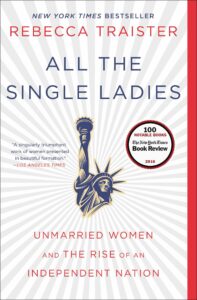
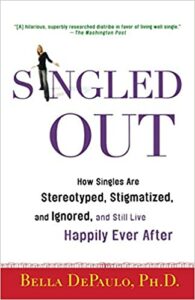
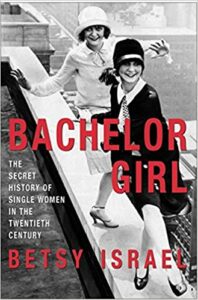
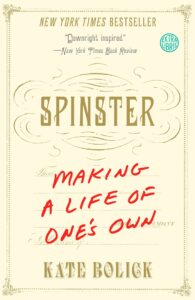
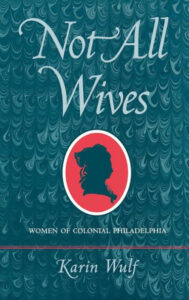
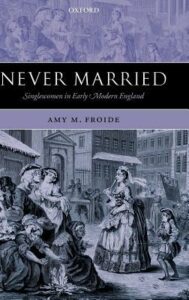
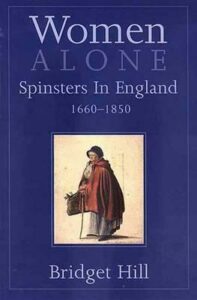
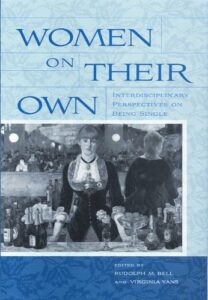
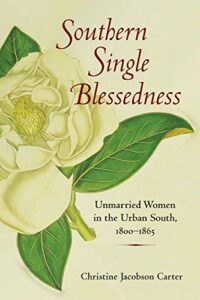
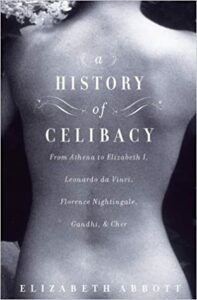
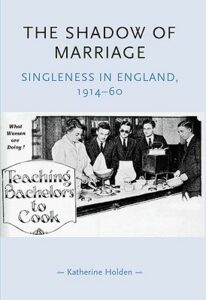

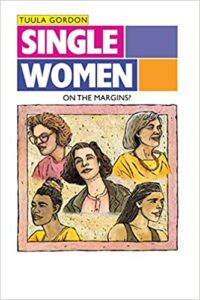

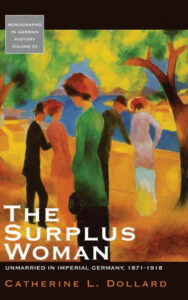
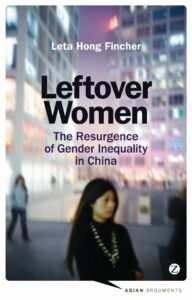
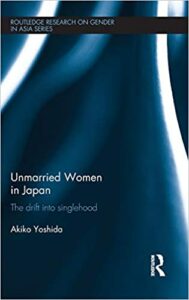
Here are direct links to the videos I’ve used:
- Oprah’s 2020 Vision Tour Visionaries: Tracee Ellis Ross Interview
- What no one ever told you about people who are single | Bella DePaulo | TEDxUHasselt
- We should all be feminists | Chimamanda Ngozi Adichie | TEDxEuston
- Rebecca Traister | All the Single Ladies | Unmarried Women
- Shonda Rhimes on Why She’ll Never Get Married | SuperSoul Sunday | Oprah Winfrey Network
- I Chose To Be Happily Single
- Emma Watson Talks Turning 30, Working With Meryl Streep, And Being Happily Single | British Vogue
- Glynnis Macnicol on « No One Tells You This » at the 2018 Miami Book Fair
- Kate Bolick: Marriage and Me
- Can Women Really Have It All? | Oprah’s Next Chapter | Oprah Winfrey Network
- A short clip of Jennifer Aniston Interviewed Gloria Steinem At Feminist Makers Conference 2014